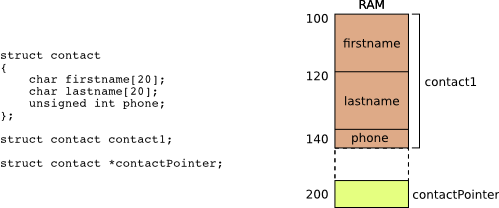

We declare an integer pointer which receives the complete array built after the function is called and we print its contents by iterating the entire five element array.We define and declare a function which returns an array address containing an integer value and didn’t take any arguments.Printf("Total summation is %d\n", add_array(Tab, 5)) Ī = build_array() /* get first 5 even numbers */Īnd here, we will discuss the program details Int add_array (int *a, int num_elements) Whereas, an array name is a pointer (address), so we just pass an array name to a function which means to pass a pointer to the array.įor example, we consider the following program: In C, we cannot pass an array by value to a function. Update the second variable (pointed by b) by the value of the first variable saved in the temporary variable.

Store the second variable pointed by b in the first variable pointed by a.Save the content of the first variable pointed by ‘a’ in the temporary variable.Here we define the swap() function content which takes two integer variable addresses as parameters and declare a temporary integer variable used as a third storage box to save one of the value variables which will be put to the second variable.After that, we print the new swapped values of variables. We call the swap() function by passing the address of the two variables as arguments using the ampersand symbol.In the main function, we declare and initialize two integer variables (‘m’ and ‘n’) then we print their values respectively.We declare the function responsible for swapping the two variable values, which takes two integer pointers as parameters and returns any value when it is called.Here we will discuss the program process: The program swaps the actual variables values because the function accesses them by address using pointers. In order to modify the actual values of variables, the calling statement passes addresses to pointer parameters in a function.įor example, the next program swaps two values of two: void swap (int *a, int *b)


With pointer parameters, our functions now can process actual data rather than a copy of data. Pointers give greatly possibilities to ‘C’ functions which we are limited to return one value.


 0 kommentar(er)
0 kommentar(er)
